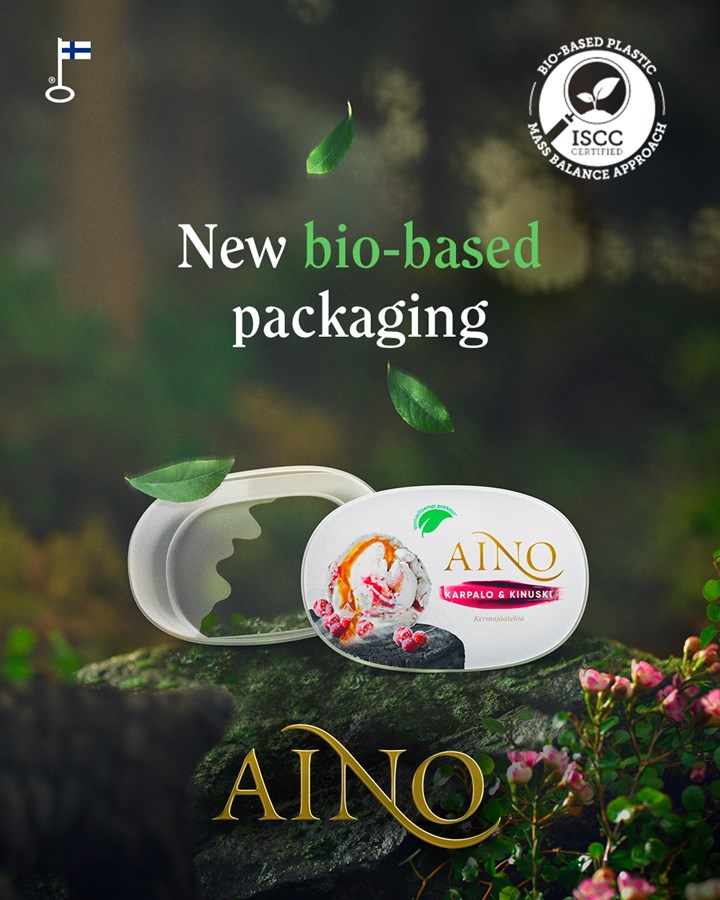PP Made with Renewable Feedstock for Highly-Sensitive Frozen Food Packaging
Borealis’ Bornewables PP enabled ‘first’ PP ice cream brand made with renewable feedstock.

Polypropylene made with renewable feedstock certified by mass balance accounting under the International Sustainability & Carbon Certification Plus (ISCC PLUS) scheme, is being used in highly-sensitive frozen good packaging. Among the first successful commercial examples of the use of Bornewables PP from is the new Aino packaging ice cream tubs and lids launched by Finland’s ice cream manufacturer Froneri. The new application is the result of Borealis’ partnership with Froneri and Germany-based global plastics packaging manufacturer Paccor. The feedstock for the Bornewables PP from Borealis is derived from second-generation bio-mass, waste and residue streams that are not competing with the human food chain.
The new tubs and lids are injection molded from fully-functional monomaterial Bornewables PP by Paccor in an integrated process with in-mold labelling decoration, which also makes this innovative monomaterial packaging 100% recyclable. The feedstock for the Bornewables PP is derived from second-generation biomass, waste and residue streams that are not competing with the human food chain. Moreover, the renewable material is used as a highly efficient drop-in solution without any further modifications required to the partners’ manufacturing and packaging lines. At the same time, it helps them reduce their carbon footprint. “. For end users, says Borealis, the Bornewables material meets all functional requirements to enable durable and protective food-contact packaging fit for freezing, while addressing increased consumer demands to minimize the climate impact and fossil depletion potential of packaging products.
Says Peter Voortmans, global commercial director consumer products at Borealis, “Implemented within just 12 months from concept to market, the new Aino ice cream packaging is an excellent example for what can be achieved by collaboration to transform the plastics industry on its road to carbon neutrality. We are very proud about our contribution to the success of this joint project, which has once again confirmed the perfect fit of our Bornewables polymers in high-quality and high-performance packaging solutions.”
Related Content
-
Let's Take a Journey into the World of Molding Thermosets – Part 1
There are many fundamental differences between thermosets and thermoplastics, from the way raw materials are furnished to the molder and the process in which parts are molded.
-
Prices Up for All Volume Resins
First quarter was ending up with upward pricing, primarily due to higher feedstock costs and not supply/demand fundamentals.
-
Polymer Science for Those Who Work With Plastic — Part 1: The Repeat Unit
What are the basic building blocks of plastics and how do they affect the processing of that material and its potential applications in the real world? Meet the repeat unit.




